- Home
- Roger Taylor
Whistler
Whistler Read online
Whistler
Roger Taylor
Roger Taylor
Whistler
Chapter 1
Clouds, dark and ominous, bloomed menacingly out of the north. Slowly, throughout the day, mass piled upon mass, higher and higher, as if those leading the vanguard were being overrun by panicking hordes behind.
Eyes that had been lifted casually towards them in the morning became narrowed and concerned as the day progressed, for the clouds were grimly unseasonable. Sour-natured weather was to be expected as winter fought to hold its ground against the coming spring: dark skies and blustering, buffeting winds bearing cold rains, and perhaps even yet a little snow would offer no great surprises. But this…?
This was surely a monstrous blizzard pending, the kind that was rare even at the heart of winter.
‘It’ll only be a thunderstorm,’ some declared, knowingly, though more to hear the reassurance in the words than from any true knowledge.
For there was no tension in the air, no tingling precursor of the tumult to come, raising the hackles of men and beasts alike.
Yet there was something hovering before this dark and massive tide, something that flickered elusively into the senses like an image caught in the corner of the eye that disappears when looked at directly. Something that was unpleasant – menacing even.
Something primitive. And awful.
None spoke of it.
* * * *
The land that lay in the advancing shade of this strange tide was a great spur that protruded south from a vast continent. It bore the name it had always borne – Gyronlandt. Once, according to legend, it had been a single mighty state glorying in its strength and prosperity, and the name still resonated with that past. Through the ages, however, that same legend declared, Gyronlandt had been riven by terrible civil strife and then by invasions of desperate peoples from across the seas, fleeing terrors and wars of their own. And despite many attempts to hold to this ancient unity – some wise, some foolish – Gyronlandt had drifted relentlessly towards what it was today, a land of a score or so different states living more or less peacefully together. A land that had been thus ever since ringing legend had dwindled into mere history and the thundering rhetoric of mythical heroes had become the ranting and mewling of an interminable list of political leaders in whose wake lay, inevitably, a long tangled skein of unfulfilled promises and broken pacts and treaties.
Nevertheless, the notion that ‘one day’ Gyronlandt would be united again still held some charm for almost all the peoples of the land, and often formed a rosy backdrop to any revels of a remotely patriotic nature. That the several states were ruled (and misruled) by as many different institutions of government, and that these institutions were frequently changed – sometimes peacefully, sometimes not – did nothing to further any cause towards such unity. Nor did the equally persistent idea that the present disunity was ‘of course’ due to ‘them’. The identity of ‘them’ varied from time to time, depending on which neighbouring state was in or out of favour, but certainly it was never ‘us’.
Gyronlandt was separated from the lands of the northern continent by an intimidating mountain range, across which only occasional traders and other desperate men would venture. The forces that had formed these mountains had also thrown up a craggy rib down the middle of Gyronlandt which culminated at its most southerly point in a region jagged with a jumble of lesser mountains. This was Canol Madreth, the smallest and most central of Gyronlandt’s states. It was also the only one whose boundaries had remained unchanged, though this was due mainly to the fact that no one saw any benefit in fighting to annex a land that consisted mainly of mountains and steep-sided valleys of uncertain fertility. Still less could anyone see any benefit in holding sway over the inhabitants of Canol Madreth – the Madren.
To the more kindly disposed of the other peoples of Gyronlandt, the Madren were said to be reserved. Others, less charitably, referred to them as rude and churlish, and frequently linked these attributes with stupidity as well. It could not be denied that the Madren’s attitude to outsiders was often an unnerving mixture of chilling politeness and open mistrust, and it did little to endear them to anyone. Not that this seemed to concern them. They considered themselves to be markedly superior to all their neighbours.
And, almost unique amongst the peoples of Gyronlandt, the Madren were religious. Indeed, they had a state religion – Ishrythan. It was a sombre-faced creed involving a stern deity, Ishryth, who together with a triumvirate of Watchers, was responsible for the creation and continuation of all things. Ishryth was forever battling against the depredations of his brother, Ahmral, who, with a trio of his own, the Uleryn, sought constantly to lead mankind astray so that in the ensuing chaos he might remake Ishryth’s creation in his own image. Ishrythan was a religion of duty and dedication, not joy or pleasure, promising bliss in the future only for appropriate behaviour now, and heavily larded with threats of eternal damnation for back-sliders. Of the other religions that existed throughout Gyronlandt, almost all derived from the same holy book as the Madren’s Ishrythan, the Santyth, though most of them held celebration at their hearts, and in so far as they considered it at all, their followers tended to look upon Ishrythan as at best a misinterpretation of the Santyth and at worst, a wilful distortion; a heresy.
Not that such thoughts were of any great significance for, even among the Madren, few in Gyronlandt held to their religion with any great proselytizing zeal. Such quarrels as existed between the various states were mercifully free from such fervour and were usually associated with trade and commerce, although occasionally tempers would flare over some long-disputed border lands. Whatever the ostensible cause of many of these disputes, there was not infrequently a large element of sheer habit in them.
At the centre of Canol Madreth stood the Ervrin Mallos, Gyronlandt’s highest peak. It rose high above its neighbours and dominated much of Canol Madreth. Indeed, its jagged broken summit could be seen from many of the surrounding states.
The Ervrin Mallos had a curiously isolated appearance, as if it did not truly belong there but had been mysteriously transported from its true home in the great northern range. The Santyth told a tale of a fearsome lord of the earth, then in human form, who had sought to destroy a great army of Ishryth’s followers who were preparing to invade the island of Gyronlandt, then an evil place.
‘… and, turning from this, Ishryth saw that Ahmral had given great power unto the chosen of his Uleryn who by his will now moved the isle through the waters of the ocean as though it were the merest coracle. And as the isle was driven upon the shores of the land, so the gathering army of the righteous was destroyed and buried beneath a mighty mountain range. And, so great was his pain, Ishryth cried out, his voice rending the very heavens. “As ye have given so shall ye receive,” and, reaching forth, he tore from the still trembling mountains a great peak and hurled it down upon the Uleryn, destroying his earthly form forever.’
Children’s tales, grimmer by far, told a darker, more claustrophobic story of a terrible king who was entombed for his cruelty and foul magics, and whose last cry of terror at this fate was so awful that the land above could not withstand it and rose up into a great mountain until the sound could be heard no more.
It was also said that the Ervrin Mallos was the resting place of a great prince who, at Ishryth’s will – or was it Ahmral’s? – lay sleeping until a dark, winged messenger should bring him forth at some time of need. This however, had neither the credence offered by the Santyth, nor the dark certainty of truth that lies in children’s whispered secrets, and was generally deemed to be a mere fabrication, although some said that it was in fact a true tale, but one brought by some ancient traveller from another place.
Whatever the trut
h, the Ervrin Mallos had an aura of deep stillness and mystery about it which had led to its being chosen as the site for the spiritual and administrative centre of Ishrythan: the Witness House. Situated halfway up the mountain, the Witness House was where the Preaching Brothers were taught, and where they returned from time to time for periods of fasting and re-affirmation. Here, too, all matters of theology were debated and decided, as were any matters of a more secular nature associated with the management of a state religion.
And as the dark storm clouds rose relentlessly in the northern sky, a particularly acrimonious debate was nearing its conclusion within the Witness House. For though the Preaching Brothers all wore the same dark garb, and though the Meeting Houses that were to be found in every Madren community were of the same simple and sombre grey-stoned architecture, Ishrythan was not totally free from internal dissension. The Santyth, like all religious books, had many passages capable of more than one interpretation.
Cassraw swept out of the Debating Hall, slamming the heavy wooden door behind him. The boom of its closing mingled with the tumult of voices that its opening had released and rolled along the stone-floored passageways. Followed by Cassraw’s echoing footsteps, it was as if the clamour were trying to flee the building before its creator.
Two novice brothers pursuing their duties stepped aside hastily as the stocky, scowling figure strode past them. They bowed tentatively but did not appear to be either surprised or offended at receiving no response. They were just starting to whisper to one another when a second figure passed by them, obviously in anxious pursuit.
‘Cassraw, wait!’ Vredech called out as he reached a balcony that overlooked the entrance hall to the Witness House. There was both appeal and urgency in his voice, and Cassraw, halfway across the entrance hall, paused.
‘Please wait,’ Vredech called again.
This time, Cassraw looked up. Vredech leaned forward, resting his hands on the wide stone balustrade. Cassraw was standing at the very centre of an elaborate mosaic pattern that radiated outwards in all directions. As Vredech looked down at his friend, it seemed to him that Cassraw’s dark scowling face had replaced the image of Ishryth that was the focus of the mosaic, and that his anger was flowing out to fill the entire hall. Vredech felt a chill of foreboding rise up inside him, and for a moment was held immobile, like prey before a predator. Then Cassraw’s voice released him, or rather, tore him free.
‘Wait for what?’ he demanded.
Vredech shook his head to dispel the lingering remains of his eerie vision, then, turning, he ran towards the curving stairway. He had no idea what he was going to say when he reached his friend, but was just thankful that he had stopped his flight.
Cassraw watched him as he ran down the stairs.
‘Just wait for me,’ Vredech said lamely, in the absence of any greater inspiration as he walked across to him.
‘For what, Vredech?’ Cassraw repeated impatiently, holding out a hand as if to fend him off.
Vredech’s distress showed on his face and he turned away from the outburst. Guilt seeped into Cassraw’s expression, changing his scowl to a look of irritation. ‘Don’t do this, Vred,’ he said, turning away himself and looking up at the high-domed roof. ‘Deliberately throwing yourself in my way and getting hurt.’
‘How can you hurt…?’
Cassraw rounded on him. ‘I said, don’t!’ he shouted. He pointed in the direction of the Debating Hall. ‘Ishryth knows, you’re my oldest friend and I love you, but they’re wrong – and you’re wrong if you side with them. The Word is the Word.’ He plunged into a pocket of his black cassock and produced a small copy of the Santyth. He slapped the book in emphasis. ‘We reject this at our peril.’
Vredech’s heart sank and he could not keep the exasperation from his voice. ‘No one’s talking about rejecting it,’ he said. ‘Why won’t you just listen to other people’s points of view? Why are you suddenly obsessed with this need to take the Santyth so literally? You know as well as I do that it’s not without obscurity in places, even downright contradictions.’
Cassraw stiffened and his hand came up again, this time to point an accusing finger. ‘That’s blasphemy,’ he said, his voice soft and hoarse. ‘Take care that…’
‘That what?’ Vredech interrupted, lifting his arms and then dropping them violently. ‘I’m not the one who’s in trouble. I’m not the one who called the head of the church a heretic. I’m not the one who’s being complained about incessantly by his flock. I’m not…’ he spluttered to a stop for a moment, then seemed to gather new strength. ‘And don’t you call me a blasphemer,’ he said, indignantly. ‘Since when is it blasphemy to speak the truth? Where there’s doubt, there’s doubt, and the blasphemy lies in not facing it, you know that well enough.’ He laid his hand on the book that Cassraw was holding. ‘These are the reports of men, Cassraw,’ he said, his voice softening. ‘Wise and revered men, but like all of us, flawed. Subject to…’
He faltered as he sensed Cassraw retreating into the grim silence that was becoming increasingly his answer to reasoned debate – when he was not actually shouting it down. ‘All right, all right,’ he said quickly. ‘Let’s not travel over that ground again. But do let’s be practical. You’ll be lucky if Mueran doesn’t have you dismissed from your post if you carry on like this.’
‘There are others who agree with me,’ Cassraw interjected.
Vredech looked at him, worldly-wise. ‘Maybe, but they’ll disagree fast enough if their posts are threatened. For pity’s sake, put a curb on your tongue. The Church is tolerant enough to accommodate a wide range of different ideas on theological matters. Why risk everything you’ve got with this nonsense?’
He clapped a hand to his head as if that might draw back the ill-considered word, but before he could speak, Cassraw was already heading towards the main door.
‘I’m sorry,’ Vredech called out, moving after him. ‘I didn’t mean to say that. It…’
Cassraw had hold of the iron ring that secured the door. ‘This church is corrupted with compromise,’ he said, his head bowed and his eyes fixed on the ring. ‘It must reform. Return to the truth of the Word or we’ll all be doomed. It must be made whole again.’ He tightened his grip about the ring. ‘Like this – unbroken – self-contained.’ He turned towards Vredech, his black eyes gazing piercingly. ‘Follow me or leave me, Vredech,’ he said, his voice deep and resonant. ‘Follow me, or leave me.’
Vredech was suddenly alarmed. He felt events slipping away from him. Cassraw’s outburst in the Debating Hall had been a serious matter, but it was repairable, with care: an apology, a little penitence would right it. But he saw now that something strange was happening to Cassraw. He felt a touch of the quality he had sensed in him at times when they were growing up together. A quality that he had thought as long passed as their youth itself. An obsessive, almost fanatical quality that in someone else he might have called evil, though the word did not come to him now.
He hesitated, part of him saying, ‘Leave him alone, you’re only making him worse.’ But the greater part of him forbade inaction where there was pain. He had to reach out – do something.
He laid his hand on the door to prevent Cassraw from opening it, and, with an effort, met the unnerving gaze. ‘What are you going to do?’ he demanded. ‘You’ve a wife to think of, an important position to maintain – one you strove for and won deservedly. I know you’ve got problems with some of your flock, but that happens to everyone at some time or another. You can’t jeopardize everything like this. Come back with me now. We can smooth everything over with a little care.’
But even as he spoke he knew that his words were not reaching his friend. ‘Corrupt with compromise, Vredech,’ Cassraw repeated. ‘Follow me or leave me.’ Then he pulled open the door and stepped outside.
Vredech did not resist. It would be hopeless, he knew. Cassraw had always tended to act more at the behest of his passions than his mind, and only when they were spent would his reason
return to him. He’d probably calm down in an hour or so and see the sense of making his peace with Mueran and the others. Surely he wouldn’t seriously risk his post with the church? He had no trade to turn to, nor land to live off. Vredech picked up the ring and let it fall. It made a dull thud as it dropped into a well-worn groove in the door. The sound set Vredech’s thoughts cascading; they carried him back to the Debating Hall and the excuses he might use to save his friend from the punishment that was surely inevitable.
He had barely taken a step away from the door when a sharp, anguished cry came from outside and tore through his inner discourse. He yanked the door open. Cassraw was standing at the foot of the broad and well-worn stone steps that led down from the door. He was gazing back at the Witness House or, more correctly, he was staring over it, his eyes wide with a mixture of terror and… ecstasy?
Vredech ran down the steps two at a time, his concern for his friend returning in full and mounting with each stride. Reaching him, he turned to see what he was staring at.
Stretching to the farthest horizons both east and west, the sky was filled with the clouds that been accumulating through that day. But where they had been dark they were now almost black, and what had been a threat of unseasonable ill weather had become a sight of terrible menace. The clouds were piled so high upon one another that they rendered insignificant the Ervrin Mallos and all the lesser peaks about it. Vredech felt himself swaying as his eye was carried irresistibly towards their summit.
‘Ye gods,’ he whispered, taking Cassraw’s arm to steady himself, and forgetting momentarily both his cloth and the place where he was standing.
‘No,’ he heard Cassraw whispering. ‘Not gods. But God. He is here. He is come. For me.’
And he was running towards the gate that led out of the grounds of the Witness House. By the time Vredech registered what Cassraw had said, he had disappeared from view. Vredech hurried to the gate after him. Two novice Brothers were returning from the Witness House’s garden. They were looking up at the clouds nervously.

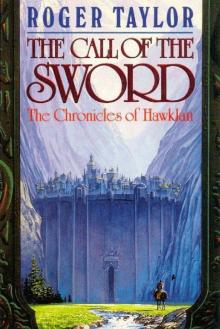 The call of the sword tcoh-1
The call of the sword tcoh-1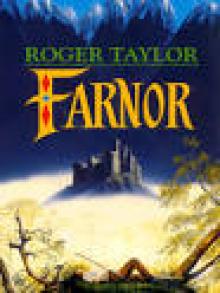 Farnor
Farnor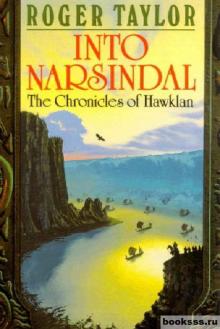 Into Narsindal
Into Narsindal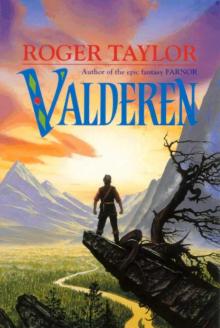 Valderen ft-2
Valderen ft-2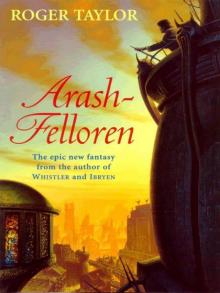 Arash-Felloren
Arash-Felloren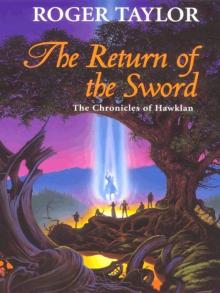 The Return of the Sword tcoh-5
The Return of the Sword tcoh-5![Ibryen [A sequel to the Chronicles of Hawklan] Read online](http://i1.bookreadfree.com/i1/03/26/ibryen_a_sequel_to_the_chronicles_of_hawklan_preview.jpg) Ibryen [A sequel to the Chronicles of Hawklan]
Ibryen [A sequel to the Chronicles of Hawklan]![The Call of the Sword [Book One of The Chronicles of Hawklan] Read online](http://i1.bookreadfree.com/i/03/24/the_call_of_the_sword_book_one_of_the_chronicles_of_hawklan_preview.jpg) The Call of the Sword [Book One of The Chronicles of Hawklan]
The Call of the Sword [Book One of The Chronicles of Hawklan]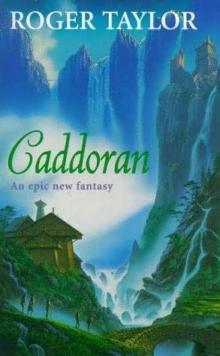 Caddoran
Caddoran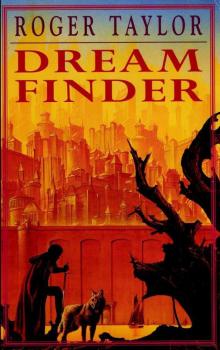 Dream Finder
Dream Finder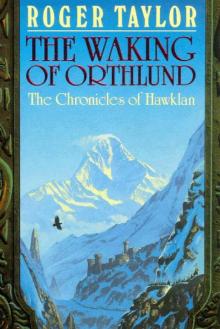 The Waking of Orthlund
The Waking of Orthlund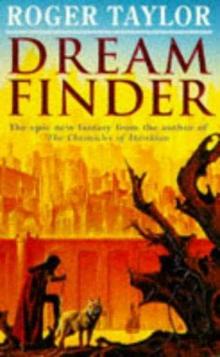 Dream Finder cohs-1
Dream Finder cohs-1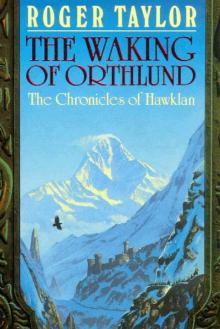 The waking of Orthlund tcoh-3
The waking of Orthlund tcoh-3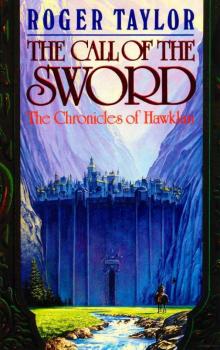 The Call of the Sword
The Call of the Sword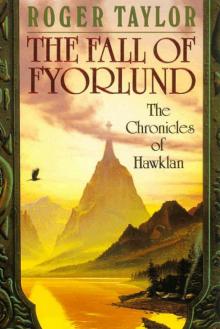 The fall of Fyorlund tcoh-2
The fall of Fyorlund tcoh-2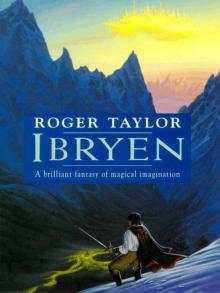 Ibryen
Ibryen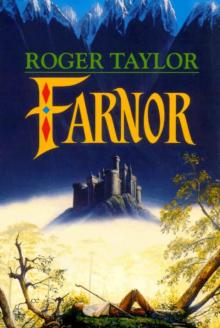 Farnor ft-1
Farnor ft-1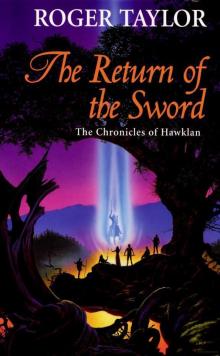 The Return of the Sword
The Return of the Sword![Into Narsindal [Book Four of The Chronicles of Hawklan] Read online](http://i1.bookreadfree.com/i2/04/06/into_narsindal_book_four_of_the_chronicles_of_hawklan_preview.jpg) Into Narsindal [Book Four of The Chronicles of Hawklan]
Into Narsindal [Book Four of The Chronicles of Hawklan]![Valderen [The Second Part of Farnor's Tale] Read online](http://i1.bookreadfree.com/i2/04/05/valderen_the_second_part_of_farnors_tale_preview.jpg) Valderen [The Second Part of Farnor's Tale]
Valderen [The Second Part of Farnor's Tale]![The Fall of Fyorlund [Book Two of The Chronicles of Hawklan] Read online](http://i1.bookreadfree.com/i2/04/08/the_fall_of_fyorlund_book_two_of_the_chronicles_of_hawklan_preview.jpg) The Fall of Fyorlund [Book Two of The Chronicles of Hawklan]
The Fall of Fyorlund [Book Two of The Chronicles of Hawklan]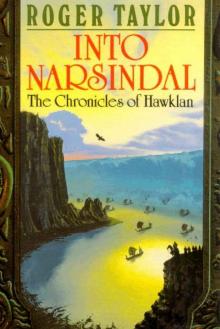 Into Narsindal tcoh-4
Into Narsindal tcoh-4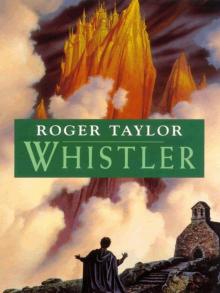 Whistler
Whistler![Whistler [A sequel to The Chronicles of Hawklan] Read online](http://i1.bookreadfree.com/i2/04/12/whistler_a_sequel_to_the_chronicles_of_hawklan_preview.jpg) Whistler [A sequel to The Chronicles of Hawklan]
Whistler [A sequel to The Chronicles of Hawklan]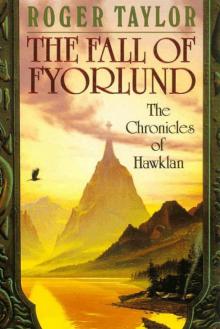 The Fall of Fyorlund
The Fall of Fyorlund![The Waking of Orthlund [Book Three of The Chronicles of Hawklan] Read online](http://i1.bookreadfree.com/i2/04/11/the_waking_of_orthlund_book_three_of_the_chronicles_of_hawklan_preview.jpg) The Waking of Orthlund [Book Three of The Chronicles of Hawklan]
The Waking of Orthlund [Book Three of The Chronicles of Hawklan]